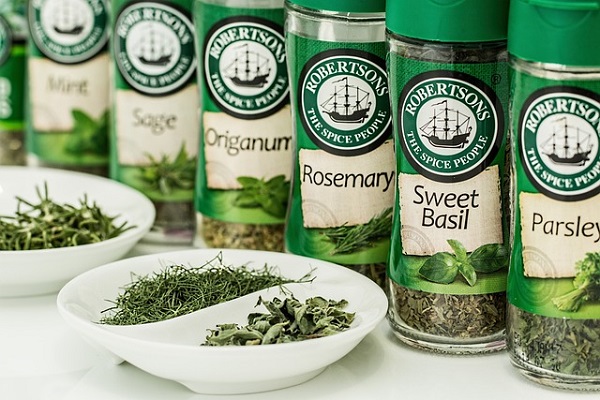Words: Kami McBRIDE
One of the keys to kitchen medicine is having all of your culinary herbs and herbal blends organised and easily accessible, so you can add them to your food as often as possible.
Have a variety of herbs next to your cooking area as well as on your table. You can put powdered herbs in salt and pepper shakers, or in tiny bowls with miniature spoons for sprinkling herbs on your food.
Food is one of our most powerful medicines. We create a million new cells every second and what we eat is what we make those cells from. Most of the culinary herbs promote digestion and assimilation, helping to increase the quality of the cells that make up our tissues and organs. Adding culinary herbs to food is a great way to bringing the healing qualities of herbs into your everyday life.
Our food contains lots of pathogenic bacteria that our mouth saliva works hard at getting rid of. The antibacterial properties of the kitchen herbs kill a lot of bacteria before it even reaches the mouth. When you look at all the antibacterial and digestive support properties that the kitchen herbs contain, you realise that by cooking with herbs you are practicing preventive healthcare while you eat.
Beyond Salt & Pepper
Add some spice to your life and have herbal mixtures on your dining table, along with the salt and pepper. Powdered ginger is a favourite on cereals and salads. The Garden Salt Substitute is delicious on grains, potatoes and fish. Plain fennel seeds provide such great digestive support that they are always on our table to sprinkle on just about anything.
Recipes
Antibacterial Sprinkle
- 1 tablespoon powdered rosemary
- 1 tablespoon powdered thyme
- 1 teaspoon crushed fennel seeds.
Consider it preventative medicine when you add antibacterial herbs to your spaghetti and meatballs. The antibacterial sprinkle goes into almost all of my meat dishes. Whenever I add the antibacterial sprinkle to my cooking, I think of its healing powers and how it is benefiting my family. Your thoughts can potentiate the actions of the herbs. The next time you are adding some spices to your food, see your family in your mind’s eye and imagine them healthy and happy. Adding your thoughts to your food is another simple and powerful way to promote healing in your everyday life.
Digestive Support Sprinkle
- 1 tablespoon powdered ginger
- 1 tablespoon powdered cardamom
- 1 tablespoon powdered cinnamon.
We’d always have Digestive Support Sprinkle to put onto toast, hot cereals, or to mix into yogurt. The digestive support herbs help us to more efficiently digest the nutrients in our food and are supportive to daily health and well-being.
Garden Salt Substitute
- 3 tablespoons dried powdered rosemary
- 3 tablespoons dried powdered parsley
- 3 tablespoons dried powdered basil
- 3 tablespoons dried powdered thyme
- ½ teaspoon garlic powder.
Herbal Marinade Mixture
- 1 tablespoon powdered basil
- 1 tablespoon powdered rosemary
- 1 teaspoon powdered black pepper
- 1 teaspoon powdered thyme.
This mixture of powdered herbs goes into practically every salad dressing and marinade we make.
Kitchen Herbs
- Basil. Calms the nervous system, helps with cough, cold, flu and allergies
- Black pepper. Helps with stomach-ache, nausea and constipation; stimulates circulation and digestion
- Cardamom. Reduces gas and bloating, relieves headaches caused by indigestion
- Cayenne. Antibacterial, rids cold and flu, dissolves mucous and congestion
- Cinnamon. Antibacterial, strengthens digestion, increases warmth and circulation
- Coriander. Relieves intestinal cramps and spasms; helps with anxiety and nervous tension
- Cumin. Relieves coughs, supports digestion, helps with insomnia
- Dill. Relieves cramps and gas; calms an upset stomach
- Fennel. Stimulates digestion, calms the nerves, stimulates the flow of breast milk
- Ginger. Helps with colds, flu, coughs; relieves nausea
- Parsley. Rich source of vitamins A and C, antioxidant, reduces premenstrual bloating
- Peppermint. Rids colds and flu, promotes digestion; coolant for hot days
- Rosemary. Promotes circulation, headache relief, calming to the nervous system
- Sage. Helps with coughs and sore throats; rich in calcium
- Thyme. Heals sinus and throat infections, antiviral, antibacterial.

